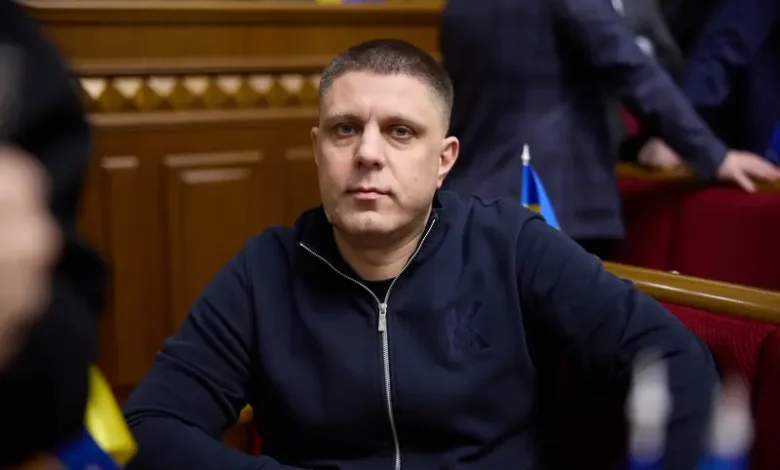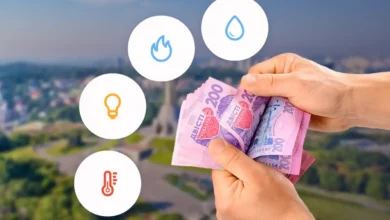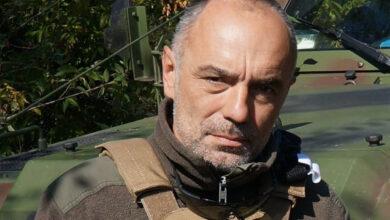Problems of the drone industry in Ukraine, the risk of losing manufacturers and the role of the state in saving the industry: Igor Kopytin’s view

During the war, Ukraine turned into one of the world leaders in the production of unmanned aerial vehicles, but due to a number of internal problems, some drone manufacturers are already seriously considering the possibility of transferring their capacities outside the country. People’s deputy Ihor Kopytin, who emphasized, that despite the huge potential of the industry and the ability to produce up to 10 million drones per year, the state has not created the necessary conditions for this potential to be fully realized.
He explained that the Ukrainian defense industry is already demonstrating the ability to produce up to 10 million unmanned aerial vehicles per year. Only in 2024, according to the Minister of Strategic Industries Herman Smetanin, 2.2 million FPV drones were assembled, and in 2025 domestic manufacturers increased volumes even more. Kopytin noted that there are more than 500 companies engaged in the production of UAVs in Ukraine, of which about 150 are directly involved in the production of FPV drones. It was during the full-scale war that Ukraine became the number one producer in the world in terms of production capacity in the field of the drone industry.
Explaining the structure of the industry, the People’s Deputy emphasized that there are currently more than 500 companies engaged in the production of UAVs in Ukraine. Among them, about 150 specialize in FPV drones. In fact, during the full-scale war, Ukraine became the world leader in terms of production potential in the drone industry. At the same time, Ihor Kopytin details the main problems that hinder the development of the industry and push enterprises to transfer production abroad. According to him, entrepreneurs began to seriously think about relocation last year, and some have already started this process. Production is transferred to Poland, the Czech Republic and the United States of America.
The deputy cites the lack of funding as the main reason for this phenomenon. The state, he explains, cannot provide all companies with the necessary level of contracting, nor does it offer manufacturers long-term contracts with the Ministry of Defense. It is because of this that approximately 40% of enterprises in the industry do not have a stable state defense order, which makes their existence extremely vulnerable.
Ihor Kopytin believes that in the absence of regular financing, the further development of production is absolutely unrealistic. At the same time, the possibility of export, which could become an additional source of working capital for enterprises, remains closed. He cites difficulties with booking employees as the second important reason why companies take production abroad. This problem is especially acute for companies that produce parts for completing drones and do not have direct government contracts, but are key to the operation of the entire industry.
Next, Kopytin draws attention to another serious problem — state pressure on business. He states that enterprises face a complex taxation system, corruption risks, and excessive bureaucracy. Moreover, according to him, more than 30% of producers reported pressure from law enforcement last year. This combination of problems pushes companies to choose more stable jurisdictions. Abroad, there are no military risks, open exports, there are opportunities for scaling up production, as well as clear business rules.
He emphasizes that today the defense-industrial complex is of exceptional importance not only for the defense capability of Ukraine, but also for its economy. Therefore, according to the deputy, the state should systematically work on the development of partnerships with enterprises of the defense sector. The drone industry needs a separate state strategy. This strategy, according to him, should contain a complete register of all market participants and a thorough analysis of real and potential threats. The most important task of such a strategy is to provide producers with stable financing through government contracts and affordable lending with interest rate compensation.
The deputy explains that stable financial income will allow companies not only to plan production volumes, but also to buy new equipment, invest in the creation of new models, in particular with the use of artificial intelligence. The state should reform the contract system to guarantee predictable financial flows to producers. He notes that currently a third of the drones for the Armed Forces of Ukraine are provided by volunteers, another 30% are purchased by the military units themselves, and only the remaining 30% come under state contracts. If Ukraine wants to win in the long-term war of attrition waged by Russia, the share of government orders should be at least 60%. It is the state that should become the main customer of UAVs for the front.
The People’s Deputy especially emphasizes the importance of a systemic approach to innovation. Although Ukraine has already accumulated successful experience in creating innovative solutions and applying them in combat, the state does not actually finance such developments. According to him, small companies are practically deprived of the opportunity to receive state grants. If the budget does not have the necessary funds, the state should turn to partners and create joint financing projects for special design bureaus. He emphasizes that Ukraine needs not just tens of millions of drones, but such devices that are capable of performing complex tasks both at the front and in the enemy’s deep rear.
According to the people’s deputy, scientific and technical development requires both financial resources and organizational efforts. Since technology changes very quickly, manufacturers often have to create new models of FPV drones that transmit the video signal not through a radio channel, but through a fiber optic cable. The development of such solutions requires significant investments. In addition, international cooperation should play a major role in the development of the drone industry. He believes that the state should develop partnerships primarily with European countries in the field of joint programs for the production of UAVs. Such projects make it possible to obtain financing, new experience, and access to modern European technologies. At the same time, it strengthens the competitiveness of Ukrainian products on world markets.
Kopytin cites an example of such a project: the recent statement by the Minister of Defense of France, Sebastien Lecornu, that a French company, together with Ukrainian partners, will launch the production of drones in Ukraine. The deputy expresses hope that there will be not one, but hundreds of similar projects.
Separately, he focuses on another critically important decision — the opening of the partial export of drones. The lack of funding in the context of a limited budget, in his opinion, limits new developments and production capacity. Exports, on the other hand, would allow companies to obtain financial resources for development. After the opening of partial exports, most manufacturers will receive additional funds from orders, which will also strengthen the Ukrainian economy due to an increase in foreign exchange earnings.
Focusing on the issue of fighting bureaucracy and corruption, Kopytin notes that digitization should be intensified, procedures should be simplified, and redundant permits and certificates should be eliminated. The unification of technical requirements for UAVs will allow establishing uniform standards for product evaluation and will facilitate the process of public procurement. After the end of the war, there should be open and transparent tenders involving professional experts to evaluate the manufacturers’ proposals. Defense orders are worth billions of hryvnias, and there should be no shady schemes. At the same time, Kopytin warns that while the war continues, completely open tenders are dangerous because of the risks of attacks on enterprises. At the same time, this does not mean that corruption should remain: law enforcement and anti-corruption bodies should act harshly even in the case of minimal violations.
Ihor Kopytin emphasizes that UAVs are already today not only a key component of modern warfare, but also open perspectives in which Ukraine is able to declare itself as a high-quality and professional player on the world market of the defense-industrial complex. He emphasizes that drones can be used not only in the military sphere, but will soon be widely used in most sectors of the economy: from industrial production to mining, in logistics processes, in the agricultural sector, as well as in the construction sector.
The People’s Deputy draws attention to the fact that further innovations in the drone industry may be related to the creation of drones that work with the use of artificial intelligence, and this will significantly affect both military operations and various areas of the civilian economy. He is convinced that participation in global technological competition is a task for Ukraine today. That is why the state should support its drone industry, which has a strong potential for development and is able to consolidate the status of a strong player in the global market of defense products.





